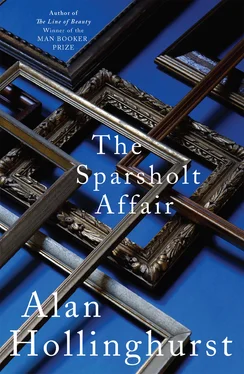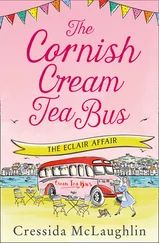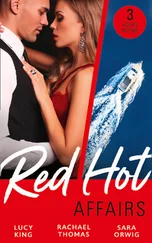Alan Hollinghurst - The Sparsholt Affair
Здесь есть возможность читать онлайн «Alan Hollinghurst - The Sparsholt Affair» весь текст электронной книги совершенно бесплатно (целиком полную версию без сокращений). В некоторых случаях можно слушать аудио, скачать через торрент в формате fb2 и присутствует краткое содержание. Год выпуска: 0101, Издательство: Pan Macmillan, Жанр: Старинная литература, на английском языке. Описание произведения, (предисловие) а так же отзывы посетителей доступны на портале библиотеки ЛибКат.
- Название:The Sparsholt Affair
- Автор:
- Издательство:Pan Macmillan
- Жанр:
- Год:0101
- ISBN:нет данных
- Рейтинг книги:5 / 5. Голосов: 1
-
Избранное:Добавить в избранное
- Отзывы:
-
Ваша оценка:
- 100
- 1
- 2
- 3
- 4
- 5
The Sparsholt Affair: краткое содержание, описание и аннотация
Предлагаем к чтению аннотацию, описание, краткое содержание или предисловие (зависит от того, что написал сам автор книги «The Sparsholt Affair»). Если вы не нашли необходимую информацию о книге — напишите в комментариях, мы постараемся отыскать её.
The Sparsholt Affair — читать онлайн бесплатно полную книгу (весь текст) целиком
Ниже представлен текст книги, разбитый по страницам. Система сохранения места последней прочитанной страницы, позволяет с удобством читать онлайн бесплатно книгу «The Sparsholt Affair», без необходимости каждый раз заново искать на чём Вы остановились. Поставьте закладку, и сможете в любой момент перейти на страницу, на которой закончили чтение.
Интервал:
Закладка:
When he got back to the house, June was putting her coat on and said she was going to top up the bird feeder, but Johnny insisted on doing it for her. He went out through the cold utility room, with its square pot sink where his father had washed his hands after work of all kinds, the cracked white bar of soap marbled with his dirt. When he opened the connecting door into the garage and turned on the light, there was the sleek superannuated Jaguar, heavy and silent, a dead man’s car; and beyond it June’s blue Golf GTi. ‘I’ve done something I never thought I’d do,’ his father had said, ‘I’ve bought a bloody German car.’ Johnny took in the remote chilled smell of oil and wood shavings from the workbench at the back where David had tinkered away his retirement mornings. On the floor in the corner, heavy, as if magnetized and movable by no one else, his large black barbell rested, and, delicately cobwebbed, the hand-weights with their stack of iron discs, used all his adult life, in staring daily sessions, until work on his arms and chest became a threat to his heart.
Johnny found a bag of birdseed on a shelf and went out through the back door. The absolute confirming greyness of the winter sky, in every direction . . . the lawn dark green with the wet, and the shaped clumps of conifers, severe and cemetery-like today, blocking off the view from the flanking houses. The bark-covered beds, the roses pruned down hard. He unhooked the green tube of the feeder, a cage within a cage, with its squirrel-proof outer guard, jiggled out its little chained lid and poured the pretty particoloured seed in a pleasing flow over the small bars which half-obstructed the entrance. The seed fell as if through time, threshed corn streaming from its chute between timbers and into the dryer at Peachey’s farm. But in a moment it was full, overfull, and he tipped some out and flung it on the grass, where the squirrels could eat it to their heart’s content. Then he hung the feeder back on the rustic frame his father had made and erected, with every structural safeguard, outside the kitchen window, where June could watch it and occasionally, for some rare visitor or a great congregation of coal tits or sparrows, call him through to have a look. Through he would come, just too late, and to a scowl from June that suggested his own thoughtless movements had frightened them off.
‘We must talk about the funeral,’ she said, when Johnny joined her again in the sitting room. She had got out three possible photos for the order of service, which might have been captioned ‘War Hero’, ‘Criminal’, ‘Old Gent’.
‘Did Dad say anything about it?’
It seemed that he hadn’t. ‘He wasn’t religious, as you know,’ said June.
‘It’s a cremation, anyway, I hope.’
‘I’m afraid,’ said June, ‘he wanted to be buried’ – and looked away at the sudden rush of agreement between them. ‘It’s in his will.’
Johnny stared at the airman photo and wished very much that the square-jawed squadron leader had given the order, when it finally came to it, for incineration. ‘Well, if that’s what he wants, I mean wanted.’
‘And with his own father, of course.’
‘Well, I suppose.’ He got up and gazed out of the window at the empty quadrant of the drive. It was a strength to him to know that Pat was (illicitly, nocturnally) scattered on Eel Brook Common – even if he felt a literal-minded reluctance to walk there in the months that followed, when the frost on the grass or the wind-blown grit on the paths might hold microscopic parts of him. He still wondered, when he saw the damp chevrons of his boot soles on the floor of the porch, if in fact he wasn’t treading Pat back into the house. But Dad was going down, in an armour-plated box, into the red Warwickshire earth, and would lie there stubbornly, immaculately dressed, until long after everyone who remembered him alive was dead too.
5
There seemed to be no more to do on the Miserden job, and he was keen to be shot of it; still, something kept him dabbing away. His preliminary sketches, lively and rhythmical, were pinned up in the studio, and the five individual oil studies painted at the house stood propped in their clearer and narrower promise along the wall. And there, across two easels, was the almost finished canvas. Large, expert, pointless, it seemed to Johnny, when he stood back from it. Certain passages still had the interest of his remembered work on them, but this would soon fade; the room was evoked with all the skill of a lifetime, suggestive but precise, the figures were cleverly grouped in their odd open knot as a family, with shades of doubt and humour to set off their staring self-importance. Yet the joy of construction, the magic of depiction, the bright run up the keyboard that told you suddenly it was done, all eluded him.
He suggested to Bella she might like to come by herself to take a look. And she did like that idea, with its hint of secrecy and the glamour of a studio visit. Johnny himself felt apologetic, exposed, in the place where he padded about all day; it was just the old dining room, with a dais made of pallets and a dingy velvet throne. But Bella was in TV, she knew about illusion, and there was something underlying their contract, that it was a meeting of illusionists. She came on a Sunday afternoon, about three o’clock: a white Range Rover Evoque outside, the bang of the knocker, Bella in the hall in tight jeans and trainers and a short coat of thick golden fur that Johnny peered at in a quandary of confirmation as he followed her through. In the studio the painting had its back to them, facing the window, and he watched her go round, acting just a little, for her first encounter. He tried to imagine seeing it for the first time himself, and the inescapable pressure to say, as she did, ‘It’s brilliant, Jonathan’ – as a first position, while her eyes kept running over it into more specialized kinds of reaction, harder to know how to put into words. He knew she would want to like it, wouldn’t want to let herself down, as a person with an eye, and hoped she would take its small critical notes as compliments to her intelligence, if not to her pride. He came round and joined her, as if to find out if he deserved her praise, and also to help her, and lead her interpretation of it.
‘God, you’ve got both my boys, to the life!’ Bella said.
‘Oh . . . good!’ said Johnny.
‘And little Tallulah, look at her . . .’
She hung back about the two adults. ‘Alan’s jolly hard to get, I must say,’ said Johnny.
‘Oh . . .’ said Bella, going close, perhaps sensing a chance to say Tell me about it! but in fact saying, ‘Oh, no, I know that look very well.’
Now Johnny stood back, against the window. ‘He didn’t like sitting, that was the thing.’
‘Well, he can’t always do what he likes, can he.’ She turned and looked at him. ‘Oh, it’s marvellous, Jonathan,’ she said and ran over and gave him a kiss on the cheek and a hard fluffy hug in which he felt all sorts of other hopes and worries were buried.
‘People often don’t like their portrait when they see it first,’ he said; ‘because it’s not how they see themselves, or the idea they have from photos, or just looking in the mirror.’
‘Well, I like it,’ said Bella, with affected stubbornness. And then, more slyly, ‘I can’t wait to see what the kids say.’
‘Can I get you something?’
‘Oh . . .’ She winced, denying herself. ‘Perhaps a herbal?’
Johnny listed them, till she grew confused, ginger, ginkgo, ginseng . . . ‘Shall I come?’ she said. But he wanted to leave her for a minute or two by herself with the portrait, in case something settled after all, some little objection.
When he came back she was standing looking out into the garden. He gave her the mug with the fluttering tag. ‘I’m sorry it’s taken so long,’ he said.
Читать дальшеИнтервал:
Закладка:
Похожие книги на «The Sparsholt Affair»
Представляем Вашему вниманию похожие книги на «The Sparsholt Affair» списком для выбора. Мы отобрали схожую по названию и смыслу литературу в надежде предоставить читателям больше вариантов отыскать новые, интересные, ещё непрочитанные произведения.
Обсуждение, отзывы о книге «The Sparsholt Affair» и просто собственные мнения читателей. Оставьте ваши комментарии, напишите, что Вы думаете о произведении, его смысле или главных героях. Укажите что конкретно понравилось, а что нет, и почему Вы так считаете.












